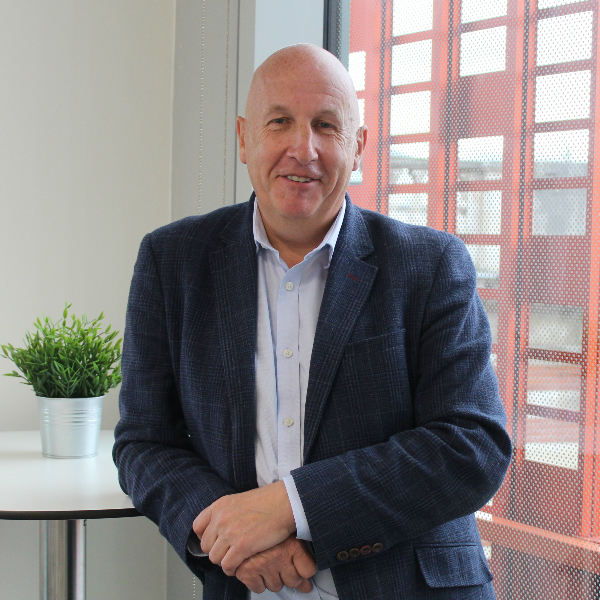This website uses cookies so that we can provide you with the best user experience possible. Cookie information is stored in your browser and performs functions such as recognising you when you return to our website and helping our team to understand which sections of the website you find most interesting and useful.
17 Jan 2020
Laura Rooney: Tech talk won’t win hearts and minds

Before joining Health Innovation Manchester, my experience and perception of technology in healthcare wasn’t very positive. I, like so many NHS staff across the county, was used to working on clunky systems, outdated devices and operating systems, with multiple log ins and even still had to use the dreaded fax machine. I have lived through a few failed clinical system deployments, picking up the crisis comms aftermath and trying to get clinical staff back on side. But once that confidence has gone, it’s really hard to get back.
Now I find myself working at the leading edge of digital innovation, working across a whole host of digital programmes including the development of an advanced digital platform to support better public services, through the local health and care record (LHCR) programme and Greater Manchester Combined Authority (GMCA), to transforming care for people with heart failure by using data from pacemakers or defibrillators to identify deterioration and intervene early.
Through all of these programmes – failed or otherwise, I have learnt a lot about how to communicate about technology to a non-technically savvy audience – and that is to avoid focusing on the technology in the first place.
From a health perspective, if you want to win the hearts and minds of clinicians and the public, we need to talk about the benefits that technology can bring to patients, carers, staff and services. Of course, there are those who want to know about the technical side of things, but the vast majority of us are more concerned with how technology will make our lives easier, improve our own care or the people we care about.
I once led the communications campaign for the implementation of a clinical system across a big provider trust and we developed an engaging brand and identity with a whole array of campaign resources. It was a decent campaign at its time, but it didn’t set the world on fire. Looking back, it was focused far too much on the tech system rather than the needs of staff and patients it was there to help. Just because you create a jazzy name or logo for something doesn’t mean people are going to buy in to it.
Since joining Health Innovation Manchester nearly two years ago, I have learnt a lot about the art of digital transformation – it’s much more about the people, process and cultural factors needed to achieve change, rather than the technology itself. And we should be acutely focused on addressing the problems faced by people and services, rather than simply pushing existing tech solutions.
It is interesting to reflect on how digital technology has transformed almost every industry, but healthcare has by and large been left behind, perhaps in part because there hasn’t previously been enough focus on the very people using it. Strategic communications and engagement has a significant role to play in supporting successful adoption and spread of technology, and I have applied this people-centred approach our work here in Greater Manchester.
My job is to act as a translator between the tech world and the real world. I don’t have to understand what all of the tech does – but I need to properly understand and describe the tangible benefits it will deliver. We need to also manage people’s expectations of what technology can do and what the limitations are – quite often tech products are supported with a big bang campaign launch, but when staff start logging on it isn’t quite what they thought. Data feeds aren’t yet live, information sharing issues are getting in the way, it’s difficult to navigate and so on. So we need to get better at describing the ‘art of the possible’ balanced with a big dose of reality to avoid people switching off and becoming disengaged.
This is where having a strong clinical and patient voice is essential – we need them to be our tech advocates and leaders to describe the benefits of technology in a way people can understand and become excited about.
The NHS is entering into one of the most promising and exciting tech eras, with digital now being one of the major priorities at the top of the shop in the NHS Long Term Plan, the Government’s Tech Vision and through the creation of national bodies like NHSX. But we need to take the workforce and patients on this journey with us, which needs to be supported by strong comms and engagement.
I’m not uncovering anything particularly new here but am reflecting that the basic principles of good communications engagement are essential for success – knowing your audience, crafting careful messaging and having the right visible figureheads to lead.
Technology doesn’t actually transform anything on its own – it is the people who use it that do and that’s how we need to tell the story to win hearts and minds.



